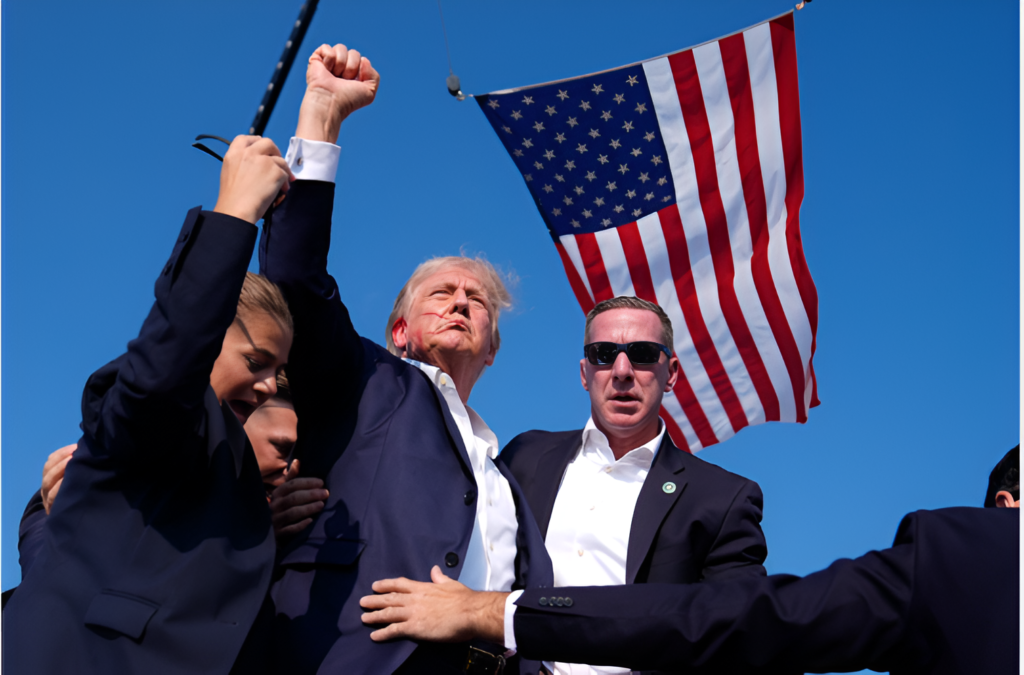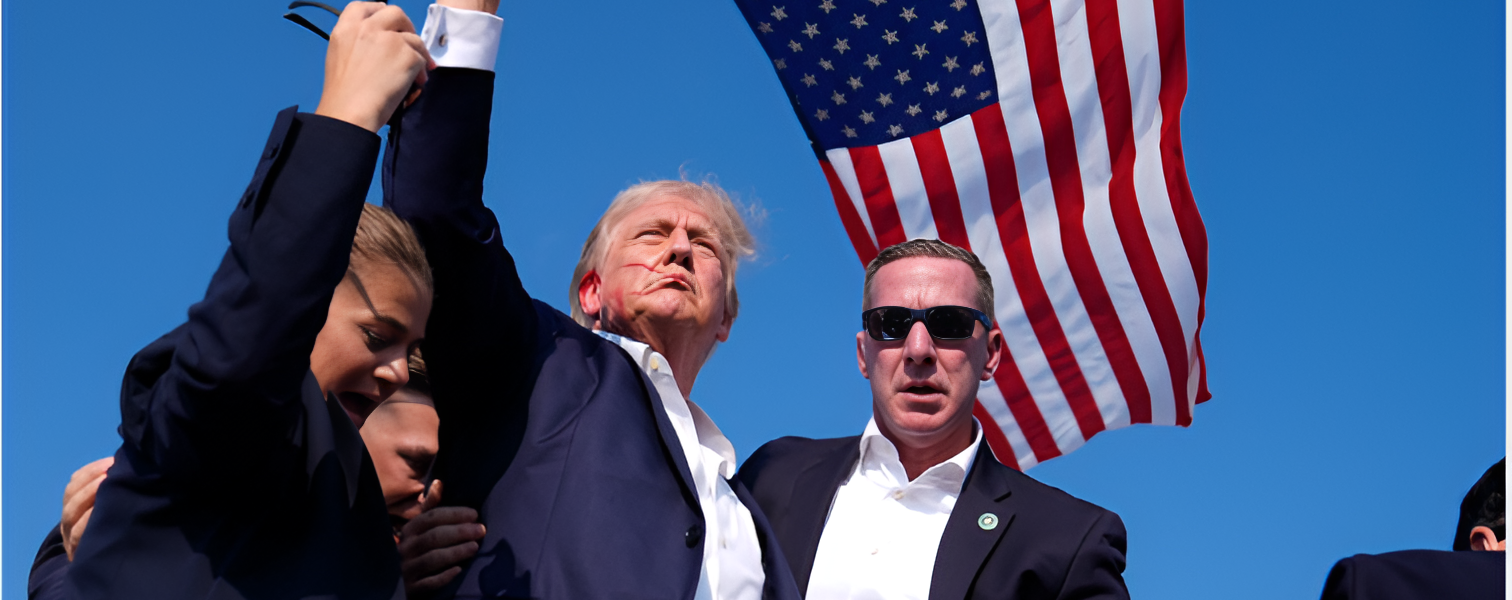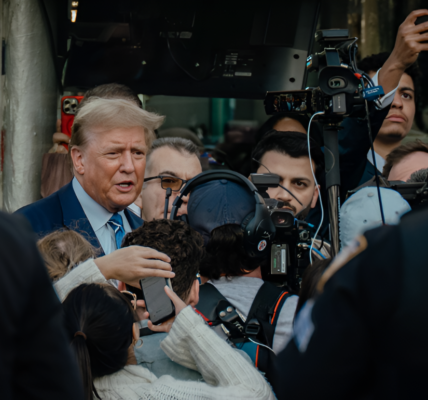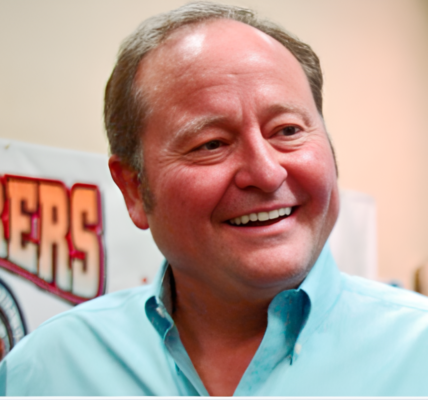
The near-assassination of former President Donald Trump during a rally in Butler, Pennsylvania, last Saturday has sent shockwaves through the political landscape, electrifying Republicans and rattling Democrats. As gunfire rang out, leaving Trump bloodied but defiant, his raised fist became an instant symbol of strength for his supporters, while simultaneously spotlighting the escalating threat of political violence in America.
Within minutes of the incident, the Republican Party transitioned from outrage to admiration, praising Trump’s swift and fearless response. His clenched fist, framed against a backdrop of the American flag and flanked by Secret Service agents, became the defining image of the night — one that will likely resonate far beyond the campaign trail.
Republican leaders quickly seized the moment to rally their base, portraying the attack as evidence of the persecution Trump has endured. Congressman Mike Kelly, present at the rally, declared, “We will not tolerate this attack from the left,” though no information about the shooter’s identity or motives had been confirmed.
Prominent voices like Senator J.D. Vance tied the attack to political rhetoric, accusing the Biden campaign of fostering an atmosphere that incited violence. Trump’s own children joined the chorus, with Donald Trump Jr. sharing the now-iconic image of his father, bloodied but resolute, captioned: “He’ll never stop fighting to Save America.”
The rapid, almost choreographed response underscored the simmering anger among Trump’s base. To his supporters, the attack validated their belief that Trump is a persecuted figure, embodying their defiance against what they see as an overreaching establishment.
In modern campaigns, perception often overshadows reality, and symbolism wields immense power. For Trump, the images of his raised fist and bloodied face could become as iconic as Reagan’s cowboy hat or Kennedy’s youthful vigor. GOP strategists predict these visuals will dominate the upcoming Republican National Convention, reinforcing Trump’s platform of strength and resilience.
“The raised fist will become the iconic symbol of the convention,” said longtime Republican strategist Mike Murphy. The convention, already themed around safety and strength, now has a visceral narrative to rally around.
Immediate polling may reflect a rally-around-the-flag effect, with independents possibly swinging toward Trump. Even critics within his own party, like Murphy, acknowledge the emotional resonance of the moment, suggesting that compassion for Trump might transcend partisan divides.
For Democrats, the incident presents a stark challenge. While leaders quickly condemned political violence, the attack has only deepened concerns about President Joe Biden’s ability to lead. Behind closed doors, Democratic strategists are grappling with fears that Trump’s newfound momentum, combined with Biden’s perceived vulnerabilities, could make an already difficult campaign nearly unwinnable.
Adding to these anxieties, Biden’s recent interactions with his party have done little to inspire confidence. During a tense conference call just hours before the shooting, the president reportedly struggled to reassure nervous lawmakers, cutting off questions as skepticism mounted.
“It felt cinematic,” one strategist observed, describing the juxtaposition of Biden’s late-night motorcade to mass and Trump’s dramatic defiance on live television. The contrast between the two leaders could not have been starker.
The attack on Trump has also reignited fears about America’s descent into political violence. Democratic strategist David Axelrod summed up the unease: “Are we going to pull back, or go deeper into division and violence?”
The parallels to a darker era in American history are striking. From the assassination of John F. Kennedy in 1963 to the attempts on the lives of Gerald Ford and Ronald Reagan, political violence has often marked periods of profound societal upheaval.
Republican Representative Guy Reschenthaler of Pennsylvania voiced a broader concern: “My big worry is that this isn’t a one-off. Are we entering another era of political violence?”
For Trump, the path forward is clear: capitalize on the narrative of strength and survival. His raised fist is already being woven into the mythology of his campaign, a potent reminder to his supporters of his resilience.
For Democrats, the challenge is more daunting. The attack has not only reshaped the political narrative but also intensified scrutiny of Biden’s leadership. The president must find a way to counter Trump’s newfound momentum while addressing growing unease within his own party.
As the nation braces for the final stretch of the campaign, one thing is certain: the events of that night in Butler, Pennsylvania, will leave an indelible mark on the 2024 election — and perhaps on the country itself.





